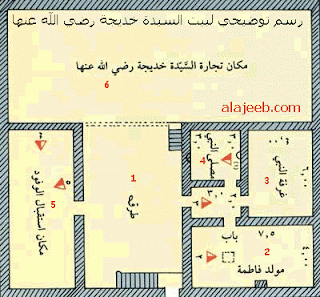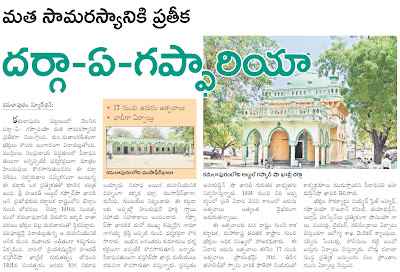Shah-E-Mardaan
Shaer-E-Yazdaan
Qoowwat-E-Parwardigaar
La Fata Illa Ali, La Saif Illa Zulfiqaar
BIRTH: Hadrat Ali Radi ALLAHu Ta'ala Anhu was born on a Friday. Some narrations quote the date as the 13th of Muharram and others state the 13th of Rajab. His birth occurred 30 years after the incident of Feel. He was born inside the Holy Kaa'ba, and none has been blessed with this excellence before him. [Noor al-Absaar]
His mother said, “When he was born, he did not drink milk for three days, and this, caused great sadness in my home. This message reached Rasoolullah SallAllaho Alaihi wa Sallam. The Prophet SallAllaho Alaihi wa Sallam arrived and took Sayyiduna Ali Radi ALLAHu Ta'ala Anhu in his blessed arms and showed great love to him. He then placed his tongue in the mouth of Sayyiduna Ali Radi ALLAHu Ta'ala Anhu and Hadrat Ali suckled on the tongue of the Prophet SallAllaho Alaihi wa Sallam and thereafter started to drink milk.”
When Hadrat Ali Radi ALLAHu Ta'ala Anhu was five years old, the Prophet SallAllaho Alaihi wa Sallam kept him at his blessed home and took care of him. He was thus groomed in the home of the Prophet SallAllaho Alaihi wa Sallam until he was ten years old.
HE ACCEPTS ISLAM: Almighty Allah commanded the Prophet SallAllaho Alaihi wa Sallam to propagate Islam amongst his family first and to correct their habits and behaviour. This, the Prophet SallAllaho Alaihi wa Sallam did and he first invited to Islam, Bibi Khadija Radi ALLAHu Ta'ala Anhu and Sayyiduna Abu Bakr Radi ALLAHu Ta'ala Anhu. He also invited Hadrat Ali Radi ALLAHu Ta'ala Anhu who happily accepted Islam. He was the first amongst the youth (children) to accept Islam. [Ikmaal fi Asmaa ar-Rijaal]
HIS EXCELLENCE: Hadrat Imam Muhammad Ghazzali Radi ALLAHu Ta'ala Anhu write in Ihyaa al-Uloom that on the night of Hijrat, when Hadrat Ali Radi ALLAHu Ta'ala Anhu was asleep in the blessed bed of the Prophet SallAllaho Alaihi wa Sallam, Almighty Allah sent wahi to Hadrat Jibraeel and Hadrat Mikaeel (alaihimus salaam) that, “I have made the two of you brothers to one another and I made the age of one from amongst you more than that of the other. Is there any from amongst you that will give part of your age to the other?”
None answered from both of them. Almighty Allah said, “The both of you are not the example of Ali Radi ALLAHu Ta'ala Anhu. I have made him the brother of my Beloved Prophet SallAllaho Alaihi wa Sallam. Look, he is asleep in the bed of his brother and is willing to sacrifice his life for him. Both of you go to earth and protect him from his enemies. Hadrat Jibraeel u descended and stood at the head side of Hadrat Ali Radi ALLAHu Ta'ala Anhu and Hadrat Israfeel u stood at his feet, protecting him for the entire night.” It was on this, that Almighty Allah revealed the verse, “Some person sells his life in pleasing Allah, and Allah is Most compassionate towards his servants.” (Surah Baqara) [Kashful Mahjoob, Page 260]
Hadrat Ibn Abbas Radi ALLAHu Ta'ala Anhu reports that once Hadrat Imam Hassan and Imam Hussain Radi ALLAHu Ta'ala Anhu were very ill. The Prophet SallAllaho Alaihi wa Sallam, Hadrat Abu Bakr and Hadrat Umar (radi Allahu anhum) came to visit the children. On leaving the Sahaba-e-Kiraam requested that Hadrat Ali Radi ALLAHu Ta'ala Anhu take some Nazr (vow) on behalf of the children. Hadrat Ali Radi ALLAHu Ta'ala Anhu, Bibi Faatima Radi ALLAHu Ta'ala Anhu and their female servant all took the vow to keep three fasts each, so that Almighty Allah may bless both the children with shifa. All three of them kept the first fast, but there was nothing in the house for Iftaar. Hadrat Ali Radi ALLAHu Ta'ala Anhu then bought three portions of flour on credit from a jew called Sham'oon. He gave one portion to Bibi Faatima Radi ALLAHu Ta'ala Anhu, who made five breads with the flour. As the time of Iftaar arrived, and they were about to eat, a beggar came to their door and said, “Salaam upon you O Ahle Bait of the Prophet SallAllaho Alaihi wa Sallam. I am a poor Muslim from amongst the poor Muslims. Please feed me with something and Allah shall feed you from the bounties of Jannat.” When they heard this, all of them gave their bread to him, and they slept just by drinking water. The next day, they sat for Iftaar when they heard someone say, “I am an Orphan. Please assist me.” Again, all of them gave their share of food to him. This happened on the third day again, when a captive asked for food, they gave all their food to him. When morning came, Hadrat Ali Radi ALLAHu Ta'ala Anhu took Imam Hassan and Hussain (Radi Allahu Anhum) to visit the Prophet SallAllaho Alaihi wa Sallam. When he saw how weak the children were, he went to Bibi Faatima Radi ALLAHu Ta'ala Anhu and saw that she too had become weak. This caused much sadness to the Prophet SallAllaho Alaihi wa Sallam. It was then, that Hadrat Jibraeel Alaihis Salam descended with this verse of the Quran, “And they feed the poor, orphan and captive in His love.” [Masaalik as-Saalikeen, Vol 1, Page 145]
This verse of the Holy Quran was also revealed in praise of Hadrat Ali Radi ALLAHu Ta'ala Anhu, “Those who spend their wealth in charity during the night and the day, (both) discreetly and openly. For them, they have a generous reward by their Lord. They have no fear nor do they have any grief.”
Hadrat Dharr bin Hubaish Radi ALLAHu Ta'ala Anhu reports that Hadrat Ali Radi ALLAHu Ta'ala Anhu said, “I swear in His Name who caused a tree to explode from a seedling and who created life, that the Prophet SallAllaho Alaihi wa Sallam said to me, ‘O Ali! Only he shall have true love for you, who is a Momin and he who has enmity against you is a hypocrite.’” [Sahih al-Muslim]
Hadrat Imraan bin Haseen Radi ALLAHu Ta'ala Anhu reports that the Prophet SallAllaho Alaihi wa Sallam said, “Ali is mine and I am his, and he is the beloved of all the believers.”[Sunan al-Tirmidhi]
Hadrat Sahl ibn Saad Radi ALLAHu Ta'ala Anhu says, “On the day of Khaibar, the Prophet SallAllaho Alaihi wa Sallam said, ‘Tomorrow I shall give this flag in the hand of that person, through whom Almighty Allah shall grant us victory. That person loves Allah and His Rasool SallAllaho Alaihi wa Sallam, and Allah and His Rasool SallAllaho Alaihi wa Sallam love him.’ When morning came, all the companions of the Prophet SallAllaho Alaihi wa Sallam came into the court of the Prophet SallAllaho Alaihi wa Sallam hoping that they would be the one who shall be chosen in whose hand the flag shall be given, but the Prophet SallAllaho Alaihi wa Sallam asked, ‘Where is Ali bin Abi Taalib Radi ALLAHu Ta'ala Anhu?’ It was said that his eyes were sore through an infection. The Prophet SallAllaho Alaihi wa Sallam said, ‘Call him’ He was thus called and the Prophet SallAllaho Alaihi wa Sallam put his blessed saliva into his eyes and they became well, as if they were never sore. He SallAllaho Alaihi wa Sallam then gave the flag in his hand.” [Sahih Bukhari - Sahih Muslim]

HIS VAST KNOWLEDGE: Hadrat Ali Radi ALLAHu Ta'ala Anhu attained great knowledge from the holy court of Rasoolullah SallAllaho Alaihi wa Sallam. Hadrat Abu Amar reports from Abu Tufail, that Hadrat Ali Radi ALLAHu Ta'ala Anhu said, “Ask me whatever you wish from the Quran. There is no ayat that I am not aware of. I even know whether it was revealed during the day or night, or it was revealed on soft our mountainous land.” [Jaami' al-Manaqib]
Hadrat Ali Radi ALLAHu Ta'ala Anhu narrated five hundred and eighty six Ahadith (Sayings) of Rasoolullah SallAllaho Alaihi wa Sallam. His knowledge, wisdom and decisions were so great that Hadrat Umar a-Farooq Radi ALLAHu Ta'ala Anhu says, “The best judge amongst all the saHaba is Hadrat Ali Radi ALLAHu Ta'ala Anhu.”
Hadrat Saeed ibn Habeeb Radi ALLAHu Ta'ala Anhu says, “There was no person in Madinah Munawwarah except Hadrat Ali Radi ALLAHu Ta'ala Anhu who could say, ‘Ask me what ever you want to know’”
Hadrat Abdullah ibn Mas'ood Radi ALLAHu Ta'ala Anhu was also the possessor of great knowledge, but he too used to openly announce the following, “None has more knowledge of the Fara'idh than Ali Radi ALLAHu Ta'ala Anhu and none has more understanding than him.” Hadrat Ali Radi ALLAHu Ta'ala Anhu says, “If I wished to compile the commentary of Sura Fateh, then I would be able to load 40 camels with books (from this tafseer).”

Age: Hadrat Ali Radi ALLAHu Ta'ala Anhu passed away on the 21st of Ramadan from the severe injury caused by the attack on him. He passed away at the age of 63.
HIS FINAL ADVICE: Before his wisaal, he called Imam Hasan and Imam Hussain (Radi Allahu Anhum) and said, “I advice you to remain pious and do not wish for the world even if it wishes for you. And if you lose any worldly belonging, then do not cry over it. Have mercy on the orphans, and help the weak.” He then turned to one of his sons, Hadrat Muhammad bin Hanafiyah Radi ALLAHu Ta'ala Anhu and gave him the same advice. He then read the Kalima and his soul travelled from this mundane world in to the heights of the hereafter. Inna Lillaahi wa Inna Ilaihi Raaji'oon!!
Haiderium Qalandaram Mastam
Banda-e-Murtuza Ali Hastam
Peshwa-e-Tamaam Rindaanam
Ke Sag-e-koo-e-Sher-e-Yazdaanam (BuAli sha qalandar)




































